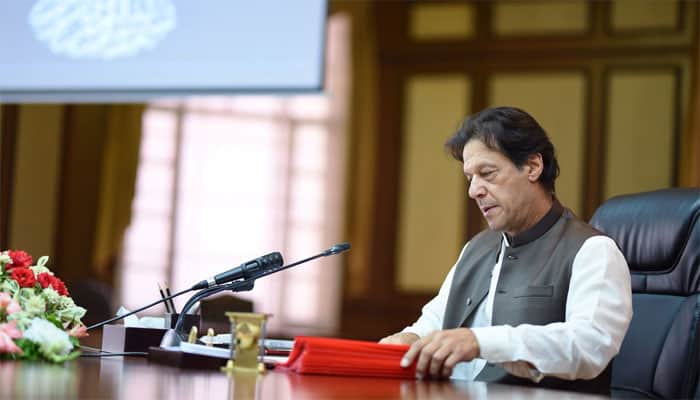ISLAMABAD – The incumbent government visibly failed to achieve key economic targets in nearly all sectors with the exception of the livestock sector according to the Economic Survey of 2018-19.
The report is due to be out officially in a day, however, few details have emerged implying that economic growth in the financial year ending in June is expected to hit 3.3 per cent, much below the target of 6.3pc set by the previous government.
The livestock sector was an exception as it grew by four per cent against the target of 3.8pc.
Moreover, a sharp decline was witnessed in the industrial sector that registered a growth of 1.4pc against the target of 7.6pc though the power generation in the country witnessed an increase.
Furthermore, the manufacturing sector slid by 0.3pc and the large scale manufacturing (LSM) showed a negative growth of 2pc against the target 8.1pc.
The service sector grew by 4.7pc against the target of 6.5pc, while the construction sector achieved the growth of 7.6pc against a 10pc target.
The factor responsible for such a performance could be delays in making key policy decisions by the government, including the one about the International Monetary Fund (IMF) bailout package.
Regarding livestock growth, an official of the national food security ministry said extensive efforts were made to control foot and mouth disease (FMD) and the Food and Agriculture Organisation (FAO) had recognised Pakistan’s success.
“This has increased their survival rate and the number of livestock has improved across the country, besides the ‘livestock loans insurance scheme’, launched in 2013, too, encouraged more people to raise farm animals,” the official added.
The unfavourable climate turned out to be a factor for the agriculture sector’s decline as it grew by only 0.8pc against a 3.8pc target.
“Pakistan will miss the target of 25.8 million tonnes of wheat produce this year because of untimely rains and storms. Similarly, the drought-like situation in some areas of Sindh and Balochistan, too, had an impact on the overall agriculture sector,” the official added.
Moreover, Cotton output dropped by 12.7pc against 9.86 million bales in 2018-19 due to shortage of irrigation water, use of low quality inputs such as inferior seed and fertilisers at the early stage of the crop and reduction of 12pc in sown area, Dawn News reported.
Rice crop also decreased by 3.3pc, sugarcane by 19.4pc against the last year’s production, while low water availability led to 3.1pc and 17.9pc reduction in the sown area for rice and sugarcane, respectively.
Responding to the criticism of Pakistan Muslim League Nawaz over the performance, an official of the finance ministry said that ambitious targets were set by the outgoing PML-N government just before the general elections, while the incumbent government assumed power in August 2018.














